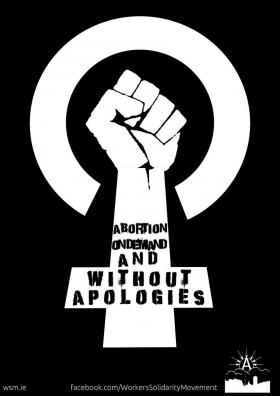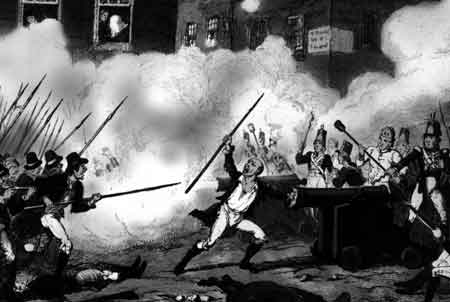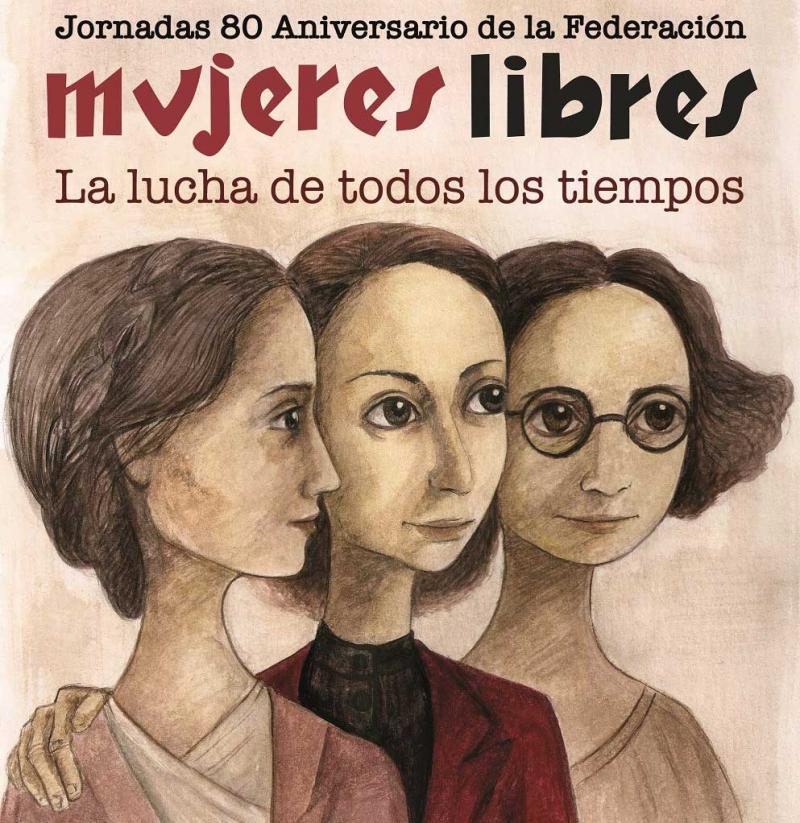Over 30 years of anarchist writing from Ireland listed under hundreds of topics
Analysis
The 'polluter pays' argument & the bin tax
The attempt to introduce refuse charges by the Dublin area county councils has been welcomed in some quarters. It is, we are told, necessary to fund a local waste management policy, that will increase the amount of waste recycled, and reduce the amount of landfill needed.
Anarchists and the right to choose
 We envisage an anarchist society as a society where people are free to make choices about their own lives. We picture a society where decisions are made at the lowest effective level. For women, this includes the decision whether or not to become pregnant, whether or not to remain pregnant, whether or not to have children.
We envisage an anarchist society as a society where people are free to make choices about their own lives. We picture a society where decisions are made at the lowest effective level. For women, this includes the decision whether or not to become pregnant, whether or not to remain pregnant, whether or not to have children.
Hobson's choice : The "Good Friday Agreement" and the Irish Left
Until the Real IRA blasted the heart out of Omagh and its people, the Northern "peace process" appeared to be close to achieving the impossible. Loyalists and Republicans alike signing up to the "Good Friday Agreement", its acceptance by large majorities on both sides of the border, Gerry Adams and Ian Paisley sitting down in the same room as part of the new Assembly - it seemed as if what had appeared for decades to be impossible had been overtaken by the realpolitik of the pragmatic. All sides in the "conflict" - we were led to believe - were looking to a new beginning. Countless column inches in the popular press had been written eulogising the "statesmanship" of David Trimble and Seamus Mallon, the "peacemaking skills" of Tony Blair and Bertie Ahern and the "pragmatism" of Gerry Adams and David Ervine.
About the Organizational Platform of the General Union of Anarchists
Anarchists are constantly thinking about how society is and how it could be. We strive towards the ideal of a free and democratic society. We know that, in order to get there, it will be necessary to tear down the present authoritarian system of government. Our struggle for freedom throws up many areas of controversy and debate. One of these has always been, and always will be, how do we get to a revolution? How do we organise for change? An important contribution to this debate was the Organisational Platform of the Libertarian Communists*, a document which was written in 1926 by a group of exiled Russian and Ukrainian anarchists, and which still has much to offer to today's debates around the question of organisation.
Racism and the Class struggle
Racial oppression remains a defining feature of the modern capitalist world. It is manifest most spectacularly in violent attacks on immigrants and minorities by fascist gangs. More important to the fate of these communities has been the systematic and increasing discrimination by capitalist states, manifest in attacks on the rights of immigrants, cuts in welfare services, and racist police and court systems. In this article, the South African anarchist organisation, the WSF, puts forward its view that the fight against racism and the class-struggle are inextricably linked.
The 1798 Rebellion
 In 1798 Ireland was shook by a mass rebellion for democratic rights and against British rule. 200 years later 1798 continues to loom over Irish politics. The bi-centenary, co-inciding with the 'Peace process', has attracted considerable discussion, with the formation of local history groups, the holding of conferences and a high level of interest in the TV documentaries and books published around the event.
In 1798 Ireland was shook by a mass rebellion for democratic rights and against British rule. 200 years later 1798 continues to loom over Irish politics. The bi-centenary, co-inciding with the 'Peace process', has attracted considerable discussion, with the formation of local history groups, the holding of conferences and a high level of interest in the TV documentaries and books published around the event.
Anarchism, militarism and civil war - Can you have an anarchist army? - Looking at the Makhnovist Movement
AS ANARCHISTS believe the bosses will resist a revolution, it follows that we accept the need for armed force to defend the revolution. But anarchists also oppose militarism, that includes standing armies controlled by the state with officers who have special privileges like extra rations, better quarters, saluting, etc. So what alternative do anarchists propose? [Greek translation]
The consequences of the fall of the Berlin wall & Eastern European dictatorships
WHAT WAS ANYONE to make of the fact that students began hanging pears from apple trees on the morning of December 20th 1990 at Bucharest University? For, early that same morning, workers were bussed from all over Romania to attend a 'spontaneous' demonstration in front of Party buildings in support of the dictator, Nicolai Ceausescu. The students at Bucharest University, aware of the real mood in the country, were satirising a famous speech made by Ceausescu to the effect that Stalinist party policy in Romania would only change when 'pears began to grow from apple trees' - the students proved to be singularly accurate with their timing.
Mujeres Libres - Free Women of Spain
 Conditions for the vast majority of people in Spain in the 1920s and 1930s were appalling. For women they were especially bad. There were extreme gender divisions. Most women were economically dependent on men. Household chores and childcare were exclusively women's domain. In both countryside and city women's wages were lower than men's. For example the average daily wage of a male agricultural labourer was 3 pesetas while a women got just half this, for working from dawn to dusk.
Conditions for the vast majority of people in Spain in the 1920s and 1930s were appalling. For women they were especially bad. There were extreme gender divisions. Most women were economically dependent on men. Household chores and childcare were exclusively women's domain. In both countryside and city women's wages were lower than men's. For example the average daily wage of a male agricultural labourer was 3 pesetas while a women got just half this, for working from dawn to dusk.
The Orange Order: an enemy of ALL workers
It is unfortunate, if perhaps somewhat inevitable, that the now annual battles around the 'marching season' fall along religious lines. The Orange parades are being used to test the supposed neutrality of the northern regime and the RUC in particular. The losing side in this dangerous game however is likely to be the working class, Protestant and Catholic, as the confrontations and the sectarian attacks that occur around the Orange marches drive people further into 'their own' communities.

